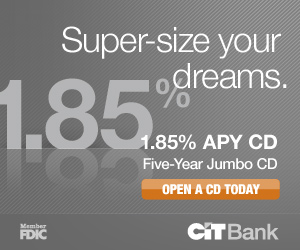Credit Unions Vs Banks
Although they may seem similar in many respects, banks and credit unions are definitely different. Although credit unions have most or all of the convenience of banks, they also have advantages that banks to not have. For instance, credit unions are often more flexible about approving loans than banks are. Credit unions also frequently have a “down home” feel – tellers and bank officers may greet you by name whenever you visit.
While banks are commercial institutions, credit unions are nonprofit organizations. Most credit unions belong to the National Credit Union Association, or NCUA. While you must be a member of a credit union to open an account, credit union eligibility is often easier to achieve than you think. Churches, companies and even cities have organized credit unions for their members, employees or residents. As a result, the odds are good that you are eligible to join at least one credit union in your area. Depending on your circumstances, opening a credit union checking account may make sense.
A Stakeholder, Not a Customer
As a member of a credit union, you are a stakeholder in the organization, and not just a customer. Your account represents an ownership interest in the organization. Because credit unions are nonprofit organizations, they often have programs in place to assist their members financially.
For example, many credit unions offer short-term loans to represent alternatives to costly payday loans. Payday loans are often due within one or two weeks and feature interest rates exceeding 300 percent. By contrast, short-term loans offered through credit unions have longer repayment periods, and carry much lower interest rates.
Credit Card and Other Banking Conveniences
Deposits made to a credit union are insured by the NCUA, just like deposits made to banks are insured by the Federal Deposit Insurance Corporation, or FDIC. This means that your money is safe. In addition, many credit unions offer Certificates of Deposit and other investment instruments that carry competitive earning rates.
As a member of a credit union, you can open checking and savings accounts, much as you can with regular banks. If you are a business owner, you can often open business checking and savings accounts through your credit union. You an also obtain personal and business credit cards from a credit union. Credit unions also often offer lower interest rates on credit cards and loans for individuals and businesses than banks
Extensive Free ATM Networks
If you hate ATM fees, joining a credit union is definitely a smart move. Many credit unions belong to nationwide networks that offer free access to ATMs for their members. You can deposit, withdraw and transfer money for no fee at any one of the ATMs that operate within the bank’s network. In addition, if you frequently travel abroad, you may be pleasantly surprised to learn that the debit or credit card issued by your credit union carries no foreign transaction fees. This feature alone can translate into significant savings if you use your card to pay for your hotel or for a car rental.
Charles Talley is a credit union branch manager. He loves to write about the benefits of this type of financial account on personal finance blogs.





